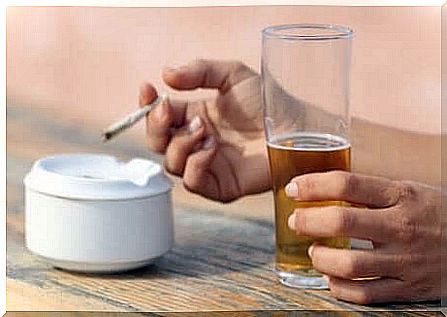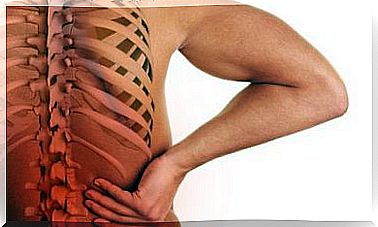Good Quality Sleep: What You Can Do For It During The Day!
In the case of sleep disorders, we often focus on measures that are directly related to sleep. But different habits during the day are also crucial in order to achieve a good night’s sleep. Read our tips today to get good results and improve your performance!

A good quality of sleep is essential for a healthy organism and optimal performance. When it comes to sleep problems, however, we tend to focus on aspects that are directly related to sleep. However, it is also important to take into account certain habits during the day in order to achieve a restful night’s sleep.
Why is good quality sleep so important?
During sleep, the organism carries out various physiological processes in order to guarantee the correct functioning of the body. It is a biological necessity that aims to:
- Restore the energy reserves of the cells in order to supply our cells with oxygen and enable their regeneration.
- Restoring the homeostasis of the central nervous system and the rest of the body tissues to enable healthy, optimal performance.
So we know that optimal sleep quality is essential for the following processes, among others:
- Balance the emotions
- Learning processes and memory
- Healthy body weight
- Internal temperature regulation
- Optimal hormone production
- Healthy heart

What happens if you don’t get enough sleep or have trouble sleeping?
Sleep disorders or inadequate sleep therefore have a negative effect on our cells and our organism, which can lead to reduced performance or diseases. The first signs of functional loss are:
- Dejection, confusion, apathy, and irritability. We don’t feel well.
- Difficulty concentrating, memory and studying problems. Our intellectual performance is deteriorating.
- Fatigue and weakness. We suffer from a lack of energy during the day.
- Increase in body weight. We’re getting bigger.
- Blurred vision and greater sensitivity to light. We don’t see so well anymore.
- Gastrointestinal complaints. Often there is constipation, diarrhea, or gas.
- Premature aging and reduced life expectancy. Various health problems arise.
Good quality sleep: strategies to implement during the day
In the case of sleep problems, we tend to seek the solution in measures that directly affect sleep. However, you shouldn’t forget that various habits and strategies that we can easily put into practice during the day have a huge impact on the quality of nighttime sleep.
We will therefore explain to you afterwards what you can do during the day to achieve a restful and good quality of sleep at night.
Regular sleep and wake times for a good quality of sleep
People with sleep problems often get into a vicious circle: they go to bed very late and consequently get up late. One of the first measures that you should strictly implement is therefore a regular sleep routine. Sleep and wake times must be determined in order to achieve a good quality of sleep and to wake up relaxed and productive the next day.
With this in mind, you should know that you can get the best quality sleep between 11 p.m. and 9 a.m. So in order to get a good night’s sleep, you should be awake and active for the rest of the time.
Between 11:00 p.m. and 9:00 a.m., the metabolic requirements for healthy sleep are perfect (release of certain neurotransmitters in the brain, central temperature, melatonin level, metabolic rhythm and brain activity).
It is important to keep to the regular sleeping times even on weekends. But of course we know that most are more flexible on days off, go to bed later and get up later accordingly. That is why it is very difficult to stick to the usual sleeping times on the weekend. But the more the sleep-wake rhythm changes, the more difficult it will be to achieve the desired sleep on weekdays.

Physical activity for a good quality sleep
If you have trouble sleeping, most people feel tired and exhausted the next day. However, the organism needs energy to maintain its vital functions. Therefore, it provides little energy for activities that are not important for survival.
As a result, we find it very difficult to carry out certain activities. But when bedtime is approaching and we haven’t been very physically active during the day, we don’t feel like sleeping (we lack the need).
Gradually the rhythm of the biological clock changes and we are most active when we should be sleeping. The more intense the sleep disturbance, the greater the inactivity. In the end, a sleep-wake pattern becomes a habit that is far from healthy.
Avoid napping after eating
As already mentioned, it is essential to be awake and active during the day in order to enjoy undisturbed rest during the night. Therefore, you should avoid napping after eating. Because the longer you sleep during the day, the less tired you will be in the evening.
However, after a sleepless night, a quick midday nap could help. A study published in the journal Revista de Neurología in 2016 concluded that taking a short nap can improve life expectancy by up to 20 percent for people who sleep less than 7 hours at night.
Versatile nutrition for a good quality of sleep
A healthy and varied diet also promotes the quality of sleep. This is because we guarantee that our organism is supplied with all the necessary micronutrients that the central nervous system needs. It can thus produce all the important neurotransmitters that are necessary, among other things, for a good night’s sleep.
With that in mind, one of your main goals should be getting enough tryptophan through your diet. This is the precursor to serotonin, also known as the “happiness hormone”, and melatonin, the “sleep hormone”. Carbohydrates are also important in the right proportions to improve the bioavailability of tryptophan in the central nervous system.
In addition, omega 3, magnesium, zinc, calcium and B group vitamins are essential to relax muscles and enable the correct formation of neurotransmitters necessary for the sleep process.
Avoid tobacco and alcohol in the hours before you go to bed
Current research has shown that tobacco and alcohol impair sleep processes up to four hours before going to sleep. As a result, we wake up tired the next day.
Tobacco has stimulating properties and activates the central nervous system. Before going to sleep you want to achieve exactly the opposite, because the sleep hormone melatonin is only released when the body is relaxed.
Alcohol is a downer (tiring, relaxing and anti-anxiety effect), but if it is consumed in the last hours of the day, it affects REM sleep. In this sleep phase it is decided which information is saved and which is forgotten.

No coffee after 5:00 p.m. to get a good quality sleep
Coffee, tea and cocoa have a stimulating effect because they contain caffeine or theobromine. You should therefore refrain from using these substances from 5:00 p.m. onwards. In some people, the stimulating effects last up to twelve hours, so those affected should avoid consumption much earlier.
No electronic devices
You should put all electronic devices aside four hours before going to bed, as they too will interfere with sleep. The blue light from the screen devices activates the photoreceptors in the retina and informs the brain that it is still daylight. It also stimulates those areas of the brain that become active even when we are frightened. This produces more cortisol (stress hormone) and inhibits the formation of melatonin (sleep hormone).
Of course, you know yourself that your health comes first. But if you are still unable to switch off your smartphone, tablet or computer in the last hours of the day, you should definitely set all display devices to amber.
Do not exercise at the end of the day to promote good quality sleep
If you do sport in the evening, the cortisol level (stress hormone) increases and the release of melatonin is inhibited as a result. As we have already explained, this hormone is essential for a good night’s sleep.
The right dinner for a good quality sleep
A healthy dinner that also promotes sleep should be low in fat, carbohydrates in moderation and protein, but not spicy or sugary foods. It’s also important to have dinner at least two hours before bed.
The reason for this is that fat, sugar and spicy foods strongly stimulate the metabolism and can therefore impair sleep. If you eat just before you go to sleep, digestion is disrupting sleep. It is therefore important to give the organism time to complete digestion before going to bed and thus to achieve the best possible quality of sleep.
Remember that high glycemic index carbohydrates lead to high blood sugar levels which, if kept within limits, could help promote tryptophan in the central nervous system. But this situation has a negative effect on the overworked pancreas, which has to release more insulin. Therefore, possible risks and advantages should be assessed on a case-by-case basis beforehand.
It is definitely beneficial to include foods rich in melatonin in your dinner. These include, for example, cherries, oats and bananas. They will help you fall asleep faster and maintain a sound sleep all night long.
In order to achieve optimal sleep quality, you should not forget the following strategies: Be active during the day, avoid stimulants and eat a varied and healthy diet!









